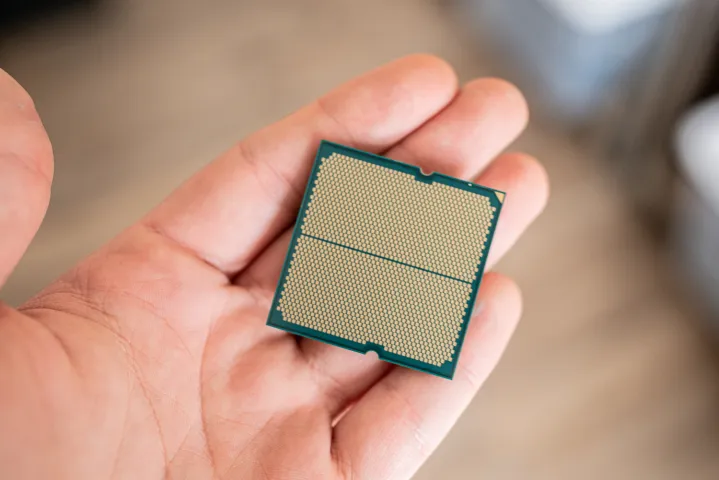
Gigabyte spoiled AMD’s surprise a bit by confirming the company’s next-gen CPUs. In a press release announcing a new BIOS for X670, B650, and A620 motherboards, Gigabyte not only confirmed that support has been added for next-gen AMD CPUs, but specifically referred to them as “AMD Ryzen 9000 series processors.”
We’ve already seen MSI and Asus add support for next-gen AMD CPUs through BIOS updates, but neither of them called the CPUs Ryzen 9000. They didn’t put out a dedicated press release for the updates, either. It should go without saying, but we don’t often see a press release for new BIOS versions, suggesting Gigabyte wanted to make a splash with its support.
As AMD said when it introduced the AM5 platform, Ryzen 9000 CPUs will support all AM5 motherboards that are currently available. You’ll need to update to the latest BIOS to use the chips when they release — specifically for AGESA 1.1.7.0 — but otherwise, you should be able to slot in one of AMD’s next-gen chips without any other platform upgrades.
Although MSI, Asus, and now Gigabyte have laid the foundation for Ryzen 9000 CPUs, AMD itself hasn’t said much about the processors. Earlier in the year, rumors made the rounds that Ryzen 9000 CPUs would launch this year, which is a fact AMD later confirmed in an earnings call. For the first few months of the year, it appeared the CPUs would release in the second half of 2024. These recent BIOS updates suggest the launch is coming sooner.
Given the timing, I’m focused on Computex 2024, which takes place in Taiwan in a little over a month. AMD is set to give the opening keynote for the annual computing event, and it seems likely that we’ll get a reveal of Zen 5 CPUs there. That’s just speculation for now, but it’s hard to believe Ryzen 9000 CPUs are several months away when we’ve seen three major motherboard vendors release BIOS updates with support for the processors.
As for what we can expect, rumor has it that the flagship chip will pack 16 Zen 5 cores. That’s the same amount of cores we’ve seen on the last several generations of Ryzen CPUs, so it makes sense. Like Ryzen 7000 chips, AMD is said to use a chiplets for the processors, likely splitting the 16-core design with two eight-core chiplets.
Whenever AMD announces the processors properly, I suspect we’ll get the standard range of options — Ryzen 9 9950X, Ryzen 7 9700X, and so on. AMD has confirmed it will eventually release Zen 5 CPUs sporting its impressive 3D V-Cache tech, but those will likely arrive much later in the year, or even early next year.




